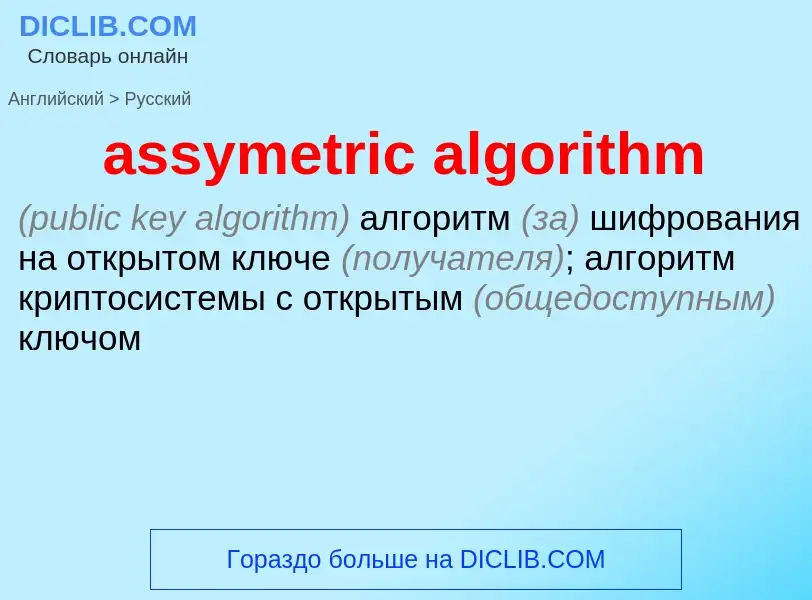Traducción y análisis de palabras por inteligencia artificial ChatGPT
En esta página puede obtener un análisis detallado de una palabra o frase, producido utilizando la mejor tecnología de inteligencia artificial hasta la fecha:
- cómo se usa la palabra
- frecuencia de uso
- se utiliza con más frecuencia en el habla oral o escrita
- opciones de traducción
- ejemplos de uso (varias frases con traducción)
- etimología
assymetric algorithm - traducción al Inglés
математика
алгоритмический метод
Wikipedia
The Tonelli–Shanks algorithm (referred to by Shanks as the RESSOL algorithm) is used in modular arithmetic to solve for r in a congruence of the form r2 ≡ n (mod p), where p is a prime: that is, to find a square root of n modulo p.
Tonelli–Shanks cannot be used for composite moduli: finding square roots modulo composite numbers is a computational problem equivalent to integer factorization.
An equivalent, but slightly more redundant version of this algorithm was developed by Alberto Tonelli in 1891. The version discussed here was developed independently by Daniel Shanks in 1973, who explained:
My tardiness in learning of these historical references was because I had lent Volume 1 of Dickson's History to a friend and it was never returned.
According to Dickson, Tonelli's algorithm can take square roots of x modulo prime powers pλ apart from primes.


![Alan Turing's statue at [[Bletchley Park]] Alan Turing's statue at [[Bletchley Park]]](https://commons.wikimedia.org/wiki/Special:FilePath/Alan Turing.jpg?width=200)




